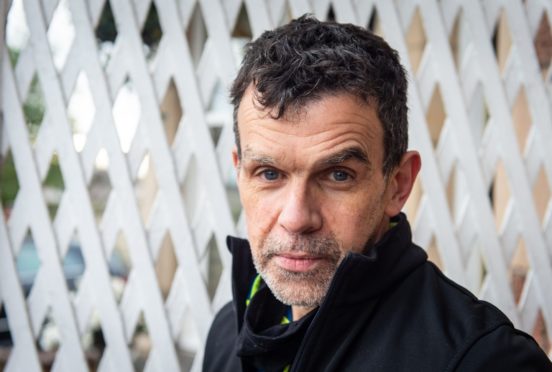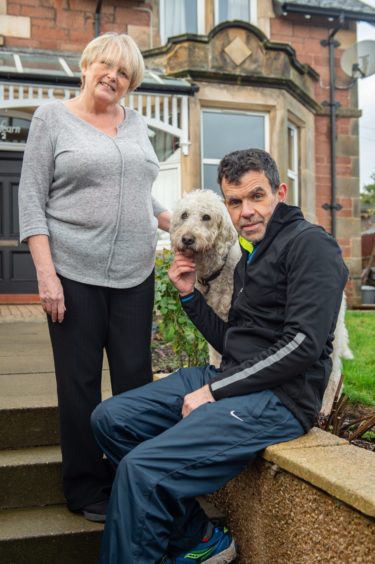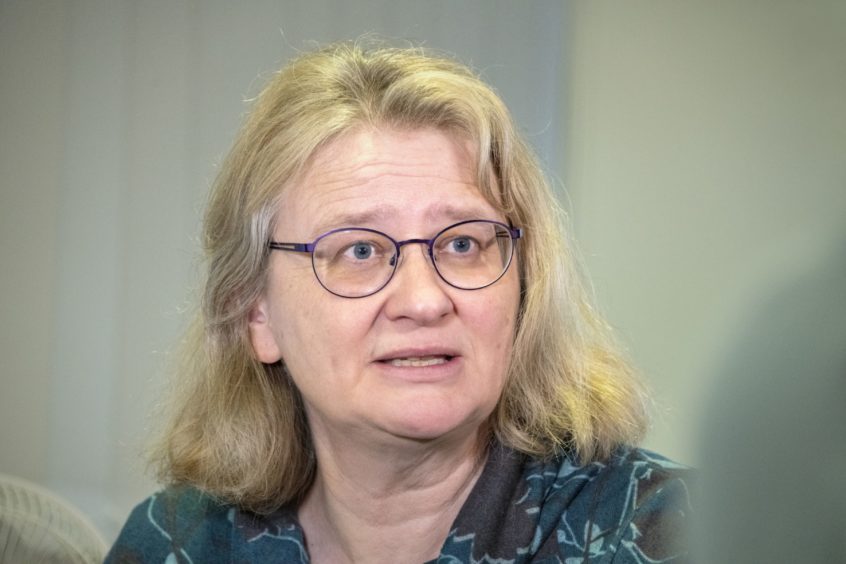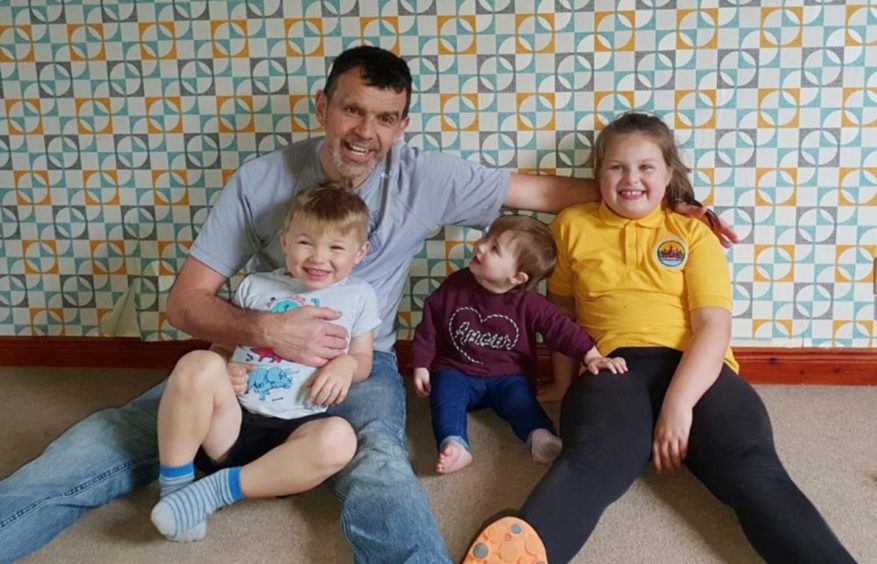For all of his life Sandy Patience has watched family and loved ones taken from him slowly by Huntington’s Disease.
The genetic condition has no known cure and has a 50% chance of being passed from parents to children – but now the 58-year-old is helping to try and change that.
Sandy, who is originally from the Black Isle but now lives in Inverness, has spent his entire life watching loved ones slip away before being diagnosed himself in 2017.
Last year he lost his sister Helen to the condition, which causes parts of the brain to gradually stop working causing problems speaking, walking and swallowing.
A two-year clinical trial to find a treatment for the disease was launched at the beginning of the year with Aberdeen one of 11 sites across the UK included.
And Sandy, who is one of only nine in Scotland taking part among 801 globally, vowed coronavirus was not going to stop him from helping to give hope to thousands of families across the world – despite the study being temporarily halted during lockdown.
He said: “It was dark days when it got stopped. I kept doing what I needed to do at home but the brakes got put on.
“I’m not doing this for me, a cure will come too late for me. All I want to do is give people hope. I’m just praying something good comes from it.
“Coronavirus wasn’t going to stop me. As soon the trial started again I wanted to get straight back to Aberdeen.
“I was a railway signalman for 17 years but had to stop due to ill-health in July. I’m trying to work out what I want to do with the rest of my life now, my head is full of ideas.
“The biggest thing for me was my daughter Kimberley getting the all-clear. It means I can look my three grandchildren in the eye and know I haven’t passed this dreadful thing onto them.”
Sandy has been travelling to Aberdeen Royal Infirmary every two months for injections in his back – not knowing whether he is getting the trial drug, manufactured by drug company Roche, or a placebo.
Experts from Aberdeen University also visually monitor changes in his movements to add to information from a device on his wrist he wears constantly, which tracks what his body is doing.
Professor Zosia Miedzybrodzka, who is leading the trial at Aberdeen University, explained the north and north-east of Scotland was a “hotspot” for Huntington’s Disease.
She said: “There is definitely a higher prevalence of it here, which could be due to a number of reasons.
“Unfortunately when lockdown started the trial had to stop, but then I noticed conditions which had no known cure were able to resume, so we were able to resume.
“All of the patients have shown phenomenal commitment. It’s not just coming on the day but they have to do mental and physical tests every day on their own.”
Meanwhile, the Scottish Huntington’s Association has launched its Cup O’ Kindness appeal to support families across the country.
The charity is the only one dedicated to supporting those with the illness as well as their loved ones – and wants to ensure nobody is left behind during the pandemic by running a team of specialists across the country with a dedicated youth service.
Sandy said: “This isn’t what I had planned for my life, but the Scottish Huntington’s Association has been there to support me.
“Over the years they’ve really helped my family, whether it’s advice about money, emotional support or just somewhere to go with questions.
“They’re a fantastic organisation.”
Donations can be made to the appeal online at www.hdscotland.org



